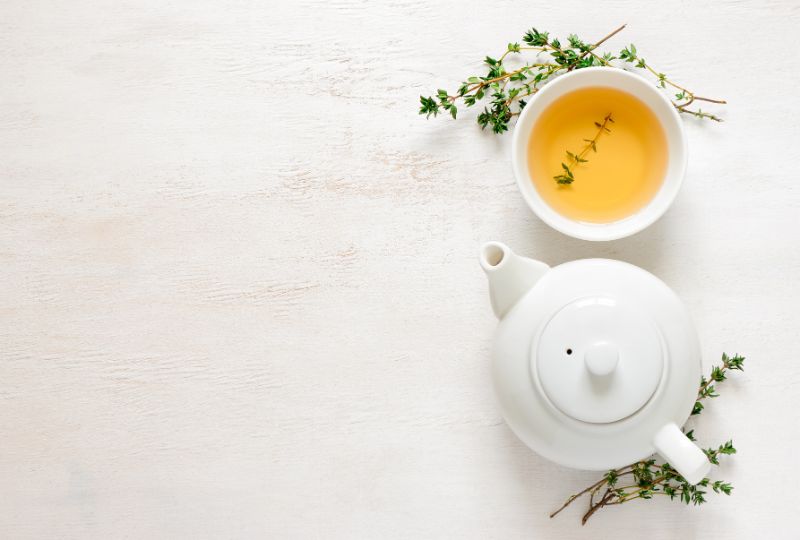A good night’s sleep is essential for mental clarity, emotional balance, and physical health. However, many people struggle with falling asleep, staying asleep, or waking up feeling rested. A consistent nighttime self-care routine can help signal your body that it’s time to relax and prepare for deep, restorative sleep.
By incorporating simple self-care habits before bed, you can reduce stress, improve sleep quality, and wake up feeling refreshed.
In this guide, you’ll learn how to create an effective nighttime self-care routine for better sleep and relaxation.
Why a Nighttime Self-Care Routine Matters
✅ Prepares the body and mind for sleep → Signals the brain to wind down.
✅ Reduces stress and anxiety → Lowers cortisol levels before bed.
✅ Improves sleep quality → Helps you fall asleep faster and stay asleep longer.
✅ Enhances overall well-being → Promotes relaxation and emotional balance.
Now, let’s explore step-by-step ways to build a relaxing nighttime routine.
Step 1: Set a Consistent Sleep Schedule
Going to bed and waking up at the same time every day helps regulate your circadian rhythm, making it easier to fall asleep and wake up naturally.
✅ How to Establish a Sleep Schedule:
- Choose a fixed bedtime and wake-up time (even on weekends).
- Allow for 7–9 hours of sleep per night.
- Avoid naps longer than 30 minutes in the afternoon.
✅ Why It Works: Helps your body develop a natural sleep-wake cycle.
Step 2: Limit Screen Time and Blue Light Exposure
The blue light from phones, tablets, and TVs disrupts melatonin production, making it harder to fall asleep.
✅ How to Reduce Screen Time Before Bed:
- Stop using screens at least 30–60 minutes before bed.
- Switch to warm lighting or night mode on devices.
- Read a physical book instead of scrolling.
✅ Why It Works: Encourages natural melatonin production for better sleep.
Step 3: Practice Relaxing Breathing Exercises
Deep breathing activates the parasympathetic nervous system, signaling the body to relax.
✅ Best Breathing Exercises for Sleep:
- 4-7-8 Breathing → Inhale for 4 seconds, hold for 7, exhale for 8.
- Diaphragmatic Breathing → Focus on deep belly breaths to calm the mind.
- Box Breathing → Inhale, hold, exhale, and pause for 4 seconds each.
✅ Why It Works: Helps reduce stress and slow down heart rate.
Step 4: Create a Calming Bedtime Environment
Your bedroom should be a peaceful and relaxing space.
✅ How to Optimize Your Sleep Space:
- Keep the room cool (60–67°F or 16–19°C).
- Use blackout curtains or a sleep mask to block light.
- Try a white noise machine or calming sounds.
✅ Why It Works: Creates a sleep-friendly environment for deep rest.
Step 5: Unwind with a Relaxing Activity
Calm your mind and body with gentle, soothing activities before bed.
✅ Best Nighttime Relaxation Activities:
- Reading a fiction book (avoid work-related material).
- Journaling about gratitude or thoughts from the day.
- Listening to soft music or nature sounds.
✅ Why It Works: Helps shift the mind away from stress and daily worries.
Step 6: Enjoy a Warm Herbal Tea or Bedtime Snack
Some herbal teas and foods naturally promote relaxation and sleep.
✅ Best Teas for Sleep:
- Chamomile 🌼 (calms the nervous system).
- Lavender 💜 (reduces stress and anxiety).
- Valerian root 🌱 (helps with deep sleep).
✅ Best Light Snacks Before Bed:
- Banana with almond butter 🍌 (contains magnesium and tryptophan).
- Warm milk with honey 🥛 (traditional sleep remedy).
- Oatmeal with cinnamon 🌾 (stabilizes blood sugar).
✅ Why It Works: Certain foods and teas support melatonin production and relaxation.
Step 7: Stretch or Do Gentle Yoga Before Bed
Light stretching or yoga releases tension and relaxes the body before sleep.
✅ Best Sleep-Friendly Stretches:
- Child’s pose → Relieves tension in the back and shoulders.
- Legs-up-the-wall pose → Improves circulation and calms the mind.
- Seated forward fold → Gently stretches the spine and hamstrings.
✅ Why It Works: Helps loosen tight muscles and prepare for restful sleep.
Step 8: Write Down Thoughts to Clear Your Mind
Racing thoughts can keep you awake, making it harder to relax. Journaling helps process emotions and reduce nighttime anxiety.
✅ Best Nighttime Journaling Prompts:
- What are 3 things I’m grateful for today?
- What went well today, and what can I improve?
- How do I want to feel tomorrow morning?
✅ Why It Works: Helps release worries and improve sleep quality.
Step 9: Use Aromatherapy for Deeper Relaxation
Certain essential oils promote relaxation and better sleep.
✅ Best Essential Oils for Sleep:
- Lavender → Calms the nervous system.
- Chamomile → Reduces anxiety and restlessness.
- Sandalwood → Creates a grounding, peaceful atmosphere.
✅ How to Use Them:
- Diffuse oils 30 minutes before bed.
- Apply diluted oil to wrists, temples, or pillow.
- Add a few drops to a warm bath.
✅ Why It Works: Engages the senses to promote deep relaxation.
How to Build a Nighttime Self-Care Routine That Works for You
🔹 Start small → Pick 2–3 self-care habits to start with.
🔹 Be consistent → Follow your routine at the same time each night.
🔹 Adjust as needed → Find what helps you relax the most.
🔹 Avoid perfection → Some nights may not go as planned, and that’s okay!
Final Thoughts
A nighttime self-care routine prepares your body and mind for deep, restful sleep. By making small, intentional changes, you can reduce stress, fall asleep faster, and wake up feeling refreshed.
Which self-care habit will you add to your bedtime routine tonight? 😊
